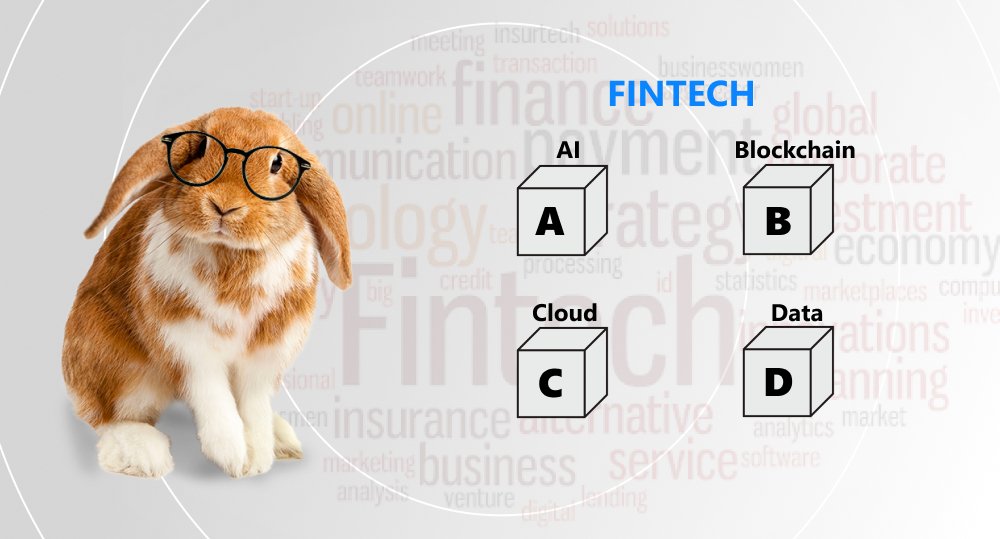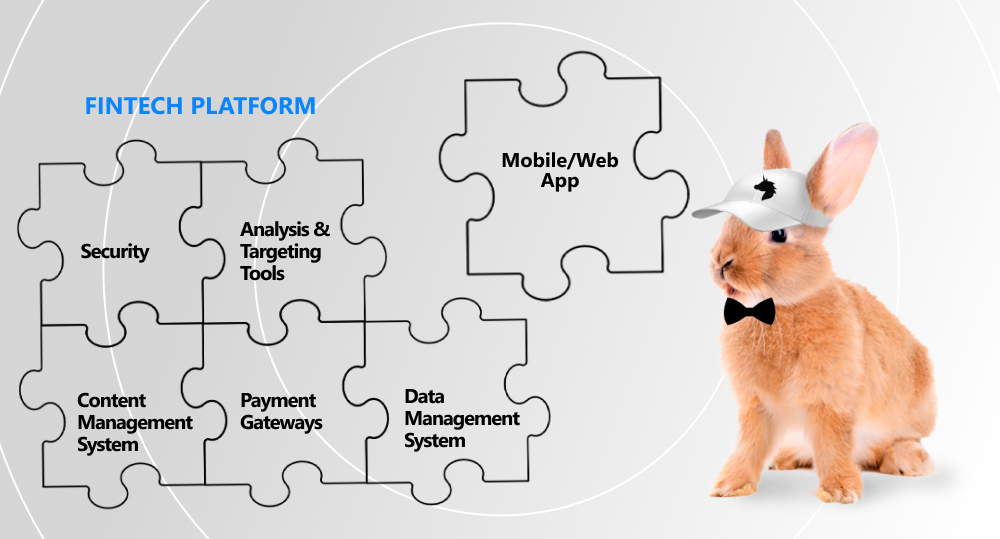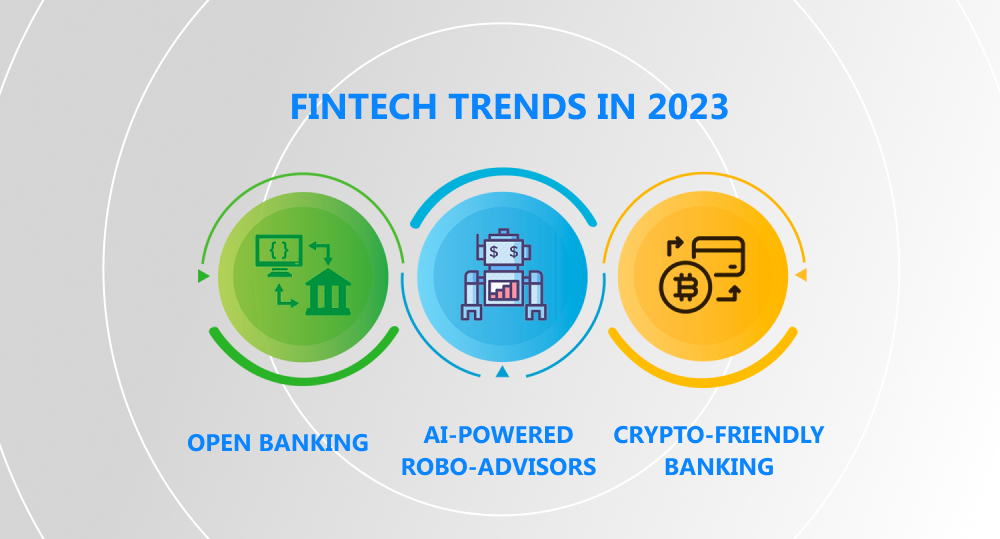The Christmas shopping season is coming, but Amazon sellers stay cool and don't rush into a panic about server performance, payment gateways, or data processing. Instead, they're pooling the efforts around catchy ad slogans and goods quality enhancement. The reason behind their relaxed behavior is as plain as daylight — Amazon takes full responsibility for the backend infrastructure of the marketplace, enabling the sellers to better focus on their products. But have you heard that traditional banking service providers can also enjoy such a life? Today, with FinTech Platform as a Service, their dearest wishes have finally come true.
Don't know what a fintech platform is and how it's working? Relax and just read on.
written by:
Alexander Arabey
Director of Business Development
The Christmas shopping season is coming, but Amazon sellers stay cool and don't rush into a panic about server performance, payment gateways, or data processing. Instead, they're pooling the efforts around catchy ad slogans and goods quality enhancement. The reason behind their relaxed behavior is as plain as daylight — Amazon takes full responsibility for the backend infrastructure of the marketplace, enabling the sellers to better focus on their products. But have you heard that traditional banking service providers can also enjoy such a life? Today, with FinTech Platform as a Service, their dearest wishes have finally come true.
Contents
Financial Institutions vs. FinTech
Before we reveal what is hiding behind the Platform-as-a-Service concept, let's try to define the scope of FinTech.
FinTech (a.k.a. financial technology) is an umbrella term for various pieces of software employed to streamline and enhance conventional financial services. Banking and wealth management apps, cryptocurrencies and trading solutions, online shopping and on-the-go payments would hardly flourish without fintech.
To better understand how fintech companies differ from traditional financial institutions, keep in mind the ABCD abbreviation which stands for Artificial intelligence, Blockchain, Cloud computing, and Data. These are four wheels that drive the fintech industry toward success and make it worth $179 billion.
What Is FinTech Platform as a Service?
Fintech Platform as a Service, or simply Platform-as-a-Service (PaaS), is a third-party payment platform that boosts the delivery of various financial services by taking full control over software development, upgrades, and security. From now on, with just one integration, financial organizations can say goodbye to cumbersome in-house payment platforms and backend infrastructure maintenance and hurl themselves into product design and sales strategy enhancement.
So, how exactly does PaaS work? To unleash the potential of this innovative technology, all you need to do is smoothly integrate the already existing user channels with a banking service platform and customize them in compliance with your product vision. If you're new to the game and haven't created any software yet, you may also launch a fresh app product on the basis of the platform (that will work as middleware).
In both cases, platform functionality becomes available to you on a subscription basis. And the good news is that your customers will never guess about this integration since for them, it will look like 100% your solution.
Top 7 Reasons to Choose PaaS
When thinking through the concept of your product, it's crucial to decide on the development approach (whether it will be built from scratch or using a platform). We recommend the second option, and here’s why.
Reduced Processing Costs
Those who go for from-scratch development should get ready to handle multiple back-end integrations and updates, as well as payment gateway selection on their own. Additionally, such an approach will entail the integration with several payment providers, which significantly extends the time and cost of development.
The PaaS approach implies that it's a technology vendor who is in charge of keeping the platform up-to-date and ensuring multiple payment solutions (so you may just choose a better fit for your product). It means, with this option, you'll save on processing costs and maintenance fees.
Boosted Time to Market
A full-scale development process may take up to several years of intellectual toil and completely drain your funds. And that is a common mistake of traditional banking institutions staying at the beginning of their digital transformation journeys.
So, don't fall into this trap, and rely on third-party payment platforms to accelerate product deployment and roll the software out to the market in leaps and bounds.
Simple Customization
When you build the product from scratch, most of the resources (both financial and human) are allocated to architecture development. As a result, not much is left for product design and user experience enhancement.
On the contrary, by alleviating the burden of tech stack implementation from financial companies, fintech as a service allows them to better focus on their customers. What's more, PaaS is an easily customizable solution that ensures fast adoption and extension of new functionality, adjustable design, and smooth integration with various external systems.
Fraud and Chargeback Prevention
Security issues are of paramount importance when it comes to banking services and financial management. So, if you take the responsibility for full-scale software development, prepare to keep a close eye on component updates.
One of the key benefits unlocked by PaaS is 24/7 software maintenance and reliable protection from hackers and fraudsters. And this is an unbeatable advantage for those who want to sleep well and simply enjoy upscale solutions.
Enhanced Scalability
One day, you will probably venture to scale your product up. And we won't lie to you by stating that it is a pretty hard task to accomplish if you handle the entire software product on your own.
On the other hand, those who stick to the PaaS approach don't worry about business growth. They do know that with such cutting-edge technology up the sleeve, the scaling process turns into smooth sledding, creating beneficial conditions to bring life into the most ambitious financial decisions.
Quality Data Management
It's no big secret that financial institutions have to deal with immense amounts of customer and transaction data. Although its processing requires formidable resources, it contributes to effective business development and enhanced customer relations.
And the Platform-as-a-Service solution provides its users with advanced tools for data processing, management, and analytics. As a result, fintech companies do know how to target a particular customer group with a related product at a fitter moment.
Positive Customer Experience
A customer retention rate is the benchmark of a company's performance. The higher it is, the better. And PaaS will allow you to boost it.
How? Pretty simple. Firstly, it will enable you to pool the efforts around the clients, not the software. Secondly, AI-powered data analytics will help you understand your customers better. On top of that, by offering local payment methods and on-the-go access to banking, you will grow customer loyalty and satisfaction.
How Will FinTech Change the Game in 2023?
The latest technologies keep conquering the industry, and in the near future we are likely to see the tendency toward the omnichannel sales strategy. Since 80% of reluctant technology users still prefer traditional bank branches to digital banking services, especially when it comes to complex issues (mortgages, loans, investments), most financial companies will combine online and offline user channels.
So, what else to expect from financial innovators in the upcoming year?
Open Banking
When a financial institution shares access to customer data with third parties via API, it means we're witnessing a vivid example of open banking. Although some people question technology transparency, IT experts prove that it complies with the highest security standards and will gain momentum in the future.
AI-Powered Robo-advisors
You will hardly surprise today's tech-savvy users by chatbots embedded into their banking apps. So, next year, developers are likely to go further and upgrade robo-advisors with enhanced speech recognition models and extended functionality.
Crypto-Friendly Banking
Those who have ever dreamed of combining traditional currencies with crypto in a single app will soon jump over the moon. It's quite recently that certain fintech players have finally managed to kill two birds with one stone and offer the solution that disrupts conventional digital banking. And in several months we will see this trend growing.
Thoughts to Go
PaaS is a fresh approach to digital banking that unlocks multiple benefits. Still, to take advantage of all of them, you must choose a trustworthy platform provider. If you ask for our advice, we'll sincerely recommend you StandFore FS — an easily customizable platform that leverages an omnichannel approach and ensures fraud prevention and full independence from the vendor. Its functionality embraces:
- Integrated digital sales & clients segmentation
- Customizable user interface and integration points
- Fully microservice-based architecture
- Full source codes, SDKs, and documentation
- Security Officer & IT Administrator (audit log, anti-fraud monitoring, user rights and accounts management)
Why Choose StandFore FS?
Benefits
Automatic change of layouts and fonts to fit any display resolution, statistics collection and detailed reporting tools, access to the platform source code.
Bonuses
FREE security audit & UI/UX review and advice, rapid implementation of a DEMO.
Ready to enter the game and launch a unique financial solution? Contact our specialists to find out how to do it in the most efficient and streamlined manner.

Contacts
Feel free to get in touch with us! Use this contact form for an ASAP response.
Call us at +44 151 528 8015
E-mail us at request@qulix.com









